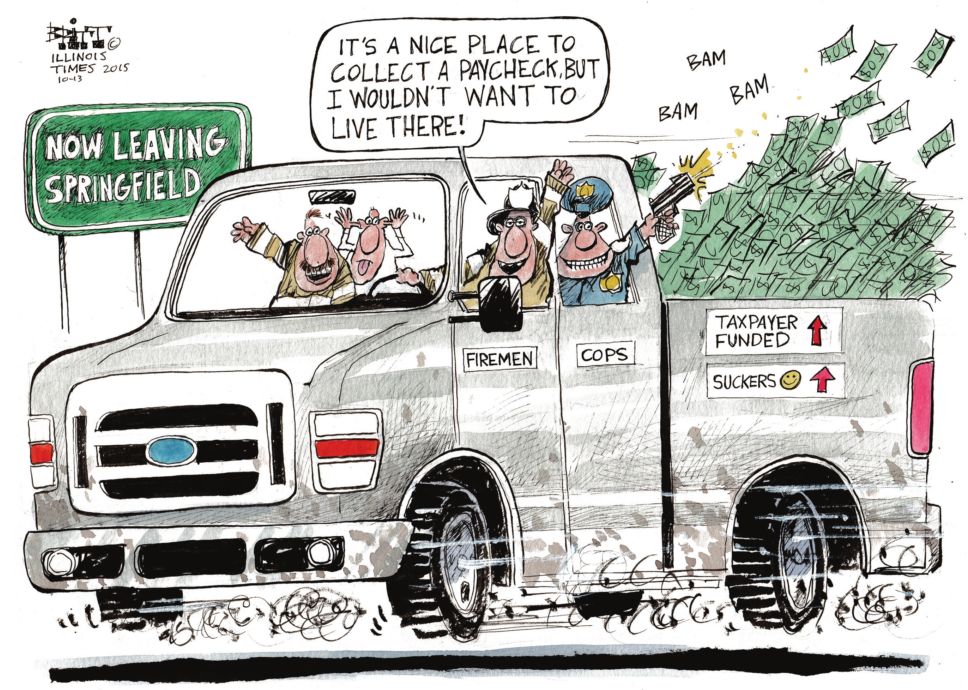
 LETTERS
LETTERS
We welcome letters. Please include your full name, address and telephone number. We edit all letters. Send them to [email protected].
PICKING ON POLICE
I am a resident, taxpayer and voter for the city of Springfield. I noticed that Britt likes to take cheap shots at the public safety folks (“Cartoon,” Chris Britt, Oct. 15). Where are the librarians, public works, CWLP employees… ?
I am beginning to wonder why Britt always singles them out. Did he flunk the psych exam during the hiring process? Jason McMillan Springfield
CONFLICT MINERALS
A few months ago, I became a campus organizer for the Conflict- Free Campus Initiative led by the Raise Hope for Congo campaign by the Enough Project at Illinois College in Jacksonville. I wanted to join the conflict-free movement as soon as I learned that electronics I use everyday contain “conflict minerals” that are a major factor contributing to the conflict in the eastern Congo. Four minerals in particular, tin, tantalum, tungsten and gold, are the most lucrative of the conflict mineral trade.
While some electronic companies are working to clear their supply chains of illegally acquired minerals, there are still many ways companies can show their opposition to the use of conflict minerals in their products.
Recently, the U.S. District Court of Appeals for the D.C. Circuit decided that the Securities and Exchange Commission’s Conflict Minerals Rule violated the First Amendment rights of companies by requiring them to state whether or not their products were “DRC conflictfree” or not, thus the court invalidated that part of the rule. This gives companies the power to hide the facts of their supply chains rather than informing consumers that their products may actually contain minerals fueling the deadliest conflict in the world since World War II.
I believe the conflict minerals case is of exceptional importance, and urge the D.C. District Court of Appeals to review the most recent decision. If there is review upon this decision, this could be huge in the fight against letting this violence continue in the DRC. Every decision made on the issue of conflict minerals can be a step toward peace or a step back from progress. Allison McNamara Pleasant Plains
INCOME INEQUALITY
In 1970 the median price for a house was under $24,000. Today it’s over $240,000. A new Volkswagen was a little over a thousand dollars, gasoline for it was about a quarter per gallon. A loaf of bread was about the same price. The minimum wage was $1.40. Prices have all gone up tenfold. If wage increases had matched price increases, the federal minimum wage would be $14 an hour.
In 1970, a CEO earned roughly 14 times as much as his lowest paid employee. Today it’s hundreds of times as much.
In his letter published Oct. 22, Jack Hellner correctly states that in an equal society people move up and down the economic ladder, but the fact is it isn’t equal at all. I was lucky enough to have good parents, but the kid down the street wasn’t so lucky; his mother was an alcoholic and as a result he was severely mentally retarded. Meanwhile, poor kids go to the worst schools with the worst teachers and infrastructure, while the rich go to the best private schools. Nobody who goes to an inner city school is ever going to earn more than the minimum wage, which should be double what it is now. Steve McGrew Springfield